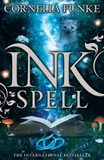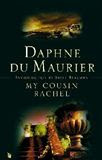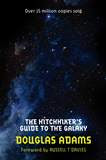 |
| copyright Hannah Houston @ EIFF |
This is my first year at the Edinburgh International Film Festival and all the more exciting for it. Sifting through the catalogue, it quickly becomes difficult to decide what to see as each description is awash with enticing and honeyed words of glorious cinematic promise. But then that’s all part of the experience. I’m a horror fan so the ‘Late Night Movies’ selection seems like a good place to start.
David Bruckner’s V/H/S follows a group of testosterone-driven thugs as they break into a house seeking a video cassette that will, apparently, make them a fortune. The house has hundreds of videos as well as a corpse seated in front of numerous television screens stuck on static. Of course, the videos are duly inserted and played to reveal a grim anthology of horrific tales.
There’s an edginess to V/H/S which is pleasantly uncomfortable. The constant hand-held camera narrative (both within the videos and the group themselves who film their exploits) is relentless and given what the film is trying to do, it works well enough.
 |
| V/H/S |
Visually the story works but each video seems just long enough to arouse interest before abruptly ending and too many questions are left unanswered. Perhaps this is its aim but audiences are, I think, looking for more. At nearly two hours, the film is drastically over-long and it’s a big ask to expect the audience to stay tuned. Like most horrors of late, V/H/S ushers its viewer through each tale of the unexplained but lacks any broader coherent story, relying heavily on tired shockers.
 |
| Henrik Mestad in Jackpot |
At a plastic Christmas tree factory in Norway, three ex-cons and their supervisor have just won the football pools. However relationships quickly fall apart with disastrously gory and vulgar results.
With a distinctive and strong cast, the apparent mystery is played out with intrigue and comic timing, particularly visible on the faces of cop Solor (Henrik Mestad) and our unlucky suspect, Oscar (Kyrre Hellum). Close shots of their bright faces and emotionless expressions are startlingly dark and funny when spliced with the inept dismembering of bodies.
There are a couple of scenes where the gallows humour feels laboured and the slickness ebbs away as our writer seems to try a little too hard to make us laugh. However, the film sculpts humour into every scene, the majority of which are bang on. The Christmas tree factory is a wonderful setting as the overweight and grubby ex-cons smoke and hurl insults at one another while they check each miniature white tree for quality control.
Slickly cut, well-paced and directed and accompanied by a solid musical score, Jackpot delivers a tight and funny black comedy. It’s not difficult to find elements of the Coen brothers in the twisting and turning plot and Tarantino in the splattering of limbs but the film finds a voice of its own in its unique sense of humour and setting.
 |
| John C. Reilly in Tim and Eric's Billion Dollar Movie |
From horror to comedy, Tim and Eric’s Billion Dollar Movie seems promising in cast alone; Will Ferrell, John C. Reilly, Jeff Goldblum, Robert Loggia and – astonishingly – a cameo from Steven Spielberg. Sadly, and I hate to write this, I despaired over what I saw. Writer and directors, Eric Wareheim and Tim Heidecker play themselves making a movie with a large budget (see title). When they blow all the cash they try to make the money back by revitalising a failing shopping mall.
The film strikes me as a desperate post-modernist tale as we see the movie-within-a-movie and the movie-within-a-movie-within-a-movie. This, however, isn’t the problem. Minutes in, I found myself squirming in my seat at the relentlessly bad jokes, the wooden acting and an increasingly absurd ‘plot’ unsupported by any clear comedy, characterisation or narrative. Tim and Eric’s Billion Dollar Movie creates its own reality with zany events and caricatures. Sadly it refuses to operate within the framework it creates and things become very boring very quickly.
Tim and Eric have garnered a loyal following and achieved success in DVD releases and online sketches and perhaps this transition to film is merely a mis-step. As I type, I feel compelled to acknowledge my difficulty with absurdist humour and as much as I try to understand it, I find it consistently irksome. Tim and Eric’s Billion Dollar Movie reminded me of that today.
Still, if I could direct you back to my initial excitement as I read the energetic blurbs for each film and even throw in a platitude of my own as I point out there are plenty more fish in the sea. Rent-A-Cat (yes, a film about renting our cats) is a top priority over the next few days and with Pixar’s Brave closing the festival, it only seems fitting that I take in some of the many animations making their debut.
 |
| copyright Hannah Houston @ EIFF |


















